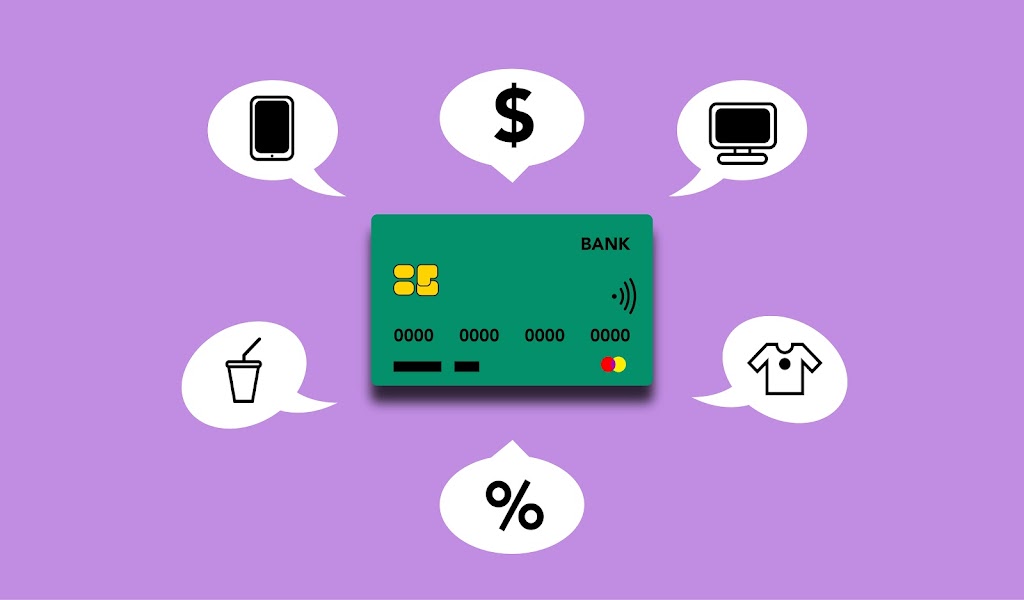Introduction
In today’s interconnected world, small businesses are
increasingly vulnerable to cyber threats. This article explores the critical
aspects of cybersecurity tailored specifically for small businesses. We’ll
discuss the importance of safeguarding your digital assets, common threats
faced by small businesses, and practical steps to enhance your cybersecurity
defenses.
Understanding the Cybersecurity Landscape
Small businesses may assume they are too insignificant to be
targeted by cybercriminals. However, this misconception is a recipe for
disaster. Cyberattacks on small businesses are on the rise because they are
perceived as easier targets compared to large corporations. Here are some key
points to consider:
- The Prevalence of Cyberattacks
Cyberattacks are not isolated incidents; they are a global
epidemic. Small businesses are targeted daily, with attackers seeking financial
gain, access to sensitive data, or even to use them as a gateway to larger
organizations.
- The Cost of a Data Breach
A data breach can be financially devastating for small
businesses. Not only do they face direct costs for recovery, but also potential
lawsuits and damage to their reputation. Cybersecurity breaches are expensive
to rectify, often crippling smaller enterprises.
Common Cybersecurity Threats for Small Businesses
Small businesses must be aware of the types of threats they
face to mount an effective defense. Let’s delve into some common cybersecurity
threats:
1. Phishing Attacks
Phishing remains a prevalent threat. Attackers use deceptive
emails or websites to trick employees into revealing sensitive information,
such as login credentials.
2. Ransomware
Ransomware attacks can paralyze a small business. Hackers
encrypt critical data and demand a ransom for its release, leaving businesses
with a difficult choice.
3. Malware Infections
Malware, including viruses and spyware, can infiltrate a
system, leading to data loss, unauthorized access, and compromised customer
information.
Building a Robust Cybersecurity Strategy
Protecting your small business requires a proactive
approach. Here’s a comprehensive strategy to fortify your cybersecurity
defenses:
1. Employee Training
Educate your staff about cybersecurity risks and how to
recognize potential threats like phishing emails. Regular training sessions can
significantly reduce the risk of human error.
2. Robust Password Policies
Enforce strong password policies, including regular updates
and the use of multi-factor authentication (MFA) wherever possible.
3. Regular Software Updates
Ensure that all software, including operating systems and
security applications, is up to date. Vulnerabilities in outdated software are
a common target for cybercriminals.
4. Firewall and Antivirus Software
Invest in reputable firewall and antivirus software to
detect and prevent malware and other malicious activities.
5. Data Backups
Regularly back up your data to a secure location. This
ensures that even if a cyberattack occurs, you can recover your critical
information.
Proactive Cybersecurity Measures
In addition to the fundamental strategies mentioned above,
there are more advanced and proactive measures that small businesses can take
to bolster their cybersecurity defenses:
6. Intrusion Detection Systems (IDS)
Implementing IDS can help identify suspicious activities on
your network. These systems monitor traffic and can alert you to potential
breaches in real-time, allowing for swift action.
7. Regular Security Audits
Conduct periodic security audits to identify vulnerabilities
in your systems and processes. This can be done internally or by hiring
external cybersecurity experts.
8. Incident Response Plan
Prepare an incident response plan outlining steps to take in
case of a security breach. This plan should include communication protocols,
legal procedures, and strategies for minimizing damage.
9. Employee Access Control
Limit employee access to sensitive data to only what is
necessary for their roles. This reduces the risk of insider threats and
accidental data exposure.
Emerging Cybersecurity Trends
The field of cybersecurity is ever-evolving. Staying updated
on the latest trends is crucial for small businesses to remain secure:
10. Artificial Intelligence (AI) in Cybersecurity
AI is increasingly being used to detect and mitigate cyber
threats. Small businesses can explore AI-driven security solutions to enhance
their defenses.
11. Cloud Security
As more businesses migrate to the cloud, ensuring the
security of cloud-based data and applications becomes paramount. Small
businesses should prioritize cloud security measures.
12. Zero Trust Security Model
The Zero Trust model assumes that no one, whether inside or
outside the organization, can be trusted. Implementing this model involves
stringent access controls and continuous verification of users and devices.
Small Business Cybersecurity Challenges
While implementing cybersecurity measures is essential,
small businesses often face unique challenges:
13. Limited Resources
Small businesses may have budget constraints, making it
challenging to invest in robust cybersecurity infrastructure. However, the cost
of a breach is far more significant.
14. Lack of In-House Expertise
Many small businesses lack dedicated IT staff with expertise
in cybersecurity. Consider outsourcing or hiring consultants to bridge this
gap.
15. Third-Party Risk
Small businesses often work with third-party vendors who may
have access to their systems. Ensure that these vendors have strong
cybersecurity measures in place to protect your data.
Conclusion
In a digital age, cybersecurity for small businesses is not
optional; it’s imperative. The consequences of neglecting cybersecurity can be
catastrophic. By understanding the threats, educating employees, and
implementing robust security measures, small businesses can significantly
reduce their vulnerability to cyberattacks.
In conclusion, cybersecurity for small businesses is not a
one-size-fits-all solution. It requires a multifaceted approach that combines
awareness, technology, and proactive strategies. By investing in cybersecurity,
small businesses can protect their digital assets, customer trust, and
ultimately, their bottom line.
FAQs
- What is the cost of a cybersecurity breach for a
small business
small business
- The cost of a cybersecurity
breach can vary widely but often includes expenses for data recovery, legal
fees, and damage to your business’s reputation. It can range from thousands to
millions of dollars.
- How can I train my employees to recognize
phishing emails?
phishing emails?
- Employee training should include
awareness programs and simulated phishing exercises. There are also online
resources and cybersecurity training providers that can help.
- Is cybersecurity insurance necessary for small
businesses?
businesses?
- Cybersecurity insurance can provide financial protection in
the event of a breach. While not mandatory, it’s a wise investment to mitigate
potential losses.
- What is multi-factor authentication (MFA)?
- Multi-factor authentication is an extra layer of security
that requires users to provide multiple forms of verification, such as a
password and a fingerprint, before gaining access to an account or system.
- Multi-factor authentication is an extra layer of security
that requires users to provide multiple forms of verification, such as a
password and a fingerprint, before gaining access to an account or system.
- How often should I update my cybersecurity strategy?
- Cyber threats evolve rapidly. It’s essential to review and
update your cybersecurity strategy regularly, at least once a year, to stay
ahead of emerging threats.
- Cyber threats evolve rapidly. It’s essential to review and
update your cybersecurity strategy regularly, at least once a year, to stay
ahead of emerging threats.
- What is the dark web, and why should small
businesses be concerned about it
- The dark web is a hidden part of the internet where illegal
activities often occur, including the sale of stolen data. Small businesses
should be concerned because their compromised data can end up for sale on the
dark web, leading to further security threats.
businesses be concerned about it
- The dark web is a hidden part of the internet where illegal
activities often occur, including the sale of stolen data. Small businesses
should be concerned because their compromised data can end up for sale on the
dark web, leading to further security threats.
- How can small businesses stay updated on
cybersecurity threats?
- Small businesses can subscribe to cybersecurity newsletters,
follow reputable cybersecurity blogs, and participate in industry forums.
Additionally, joining a local or online business association can provide access
to valuable cybersecurity resources.
cybersecurity threats?
- Small businesses can subscribe to cybersecurity newsletters,
follow reputable cybersecurity blogs, and participate in industry forums.
Additionally, joining a local or online business association can provide access
to valuable cybersecurity resources.
- Is it necessary to hire a cybersecurity
consultant for a small business?
- While not mandatory, hiring a cybersecurity consultant can
provide expertise and guidance tailored to your specific business needs. It can
be a cost-effective way to enhance your cybersecurity posture.
consultant for a small business?
- While not mandatory, hiring a cybersecurity consultant can
provide expertise and guidance tailored to your specific business needs. It can
be a cost-effective way to enhance your cybersecurity posture.
- Are there government regulations regarding
cybersecurity for small businesses
- Depending on your location and industry, there may be
regulations that require specific cybersecurity measures. It’s essential to
research and comply with relevant laws and regulations.
cybersecurity for small businesses
- Depending on your location and industry, there may be
regulations that require specific cybersecurity measures. It’s essential to
research and comply with relevant laws and regulations.

.jpg)





